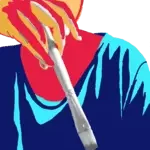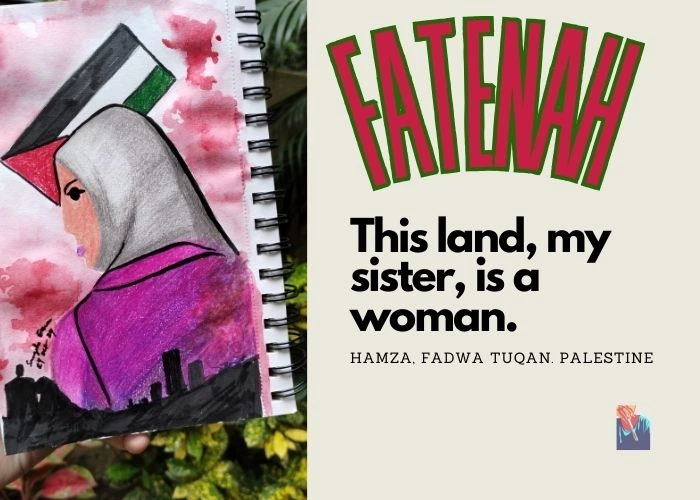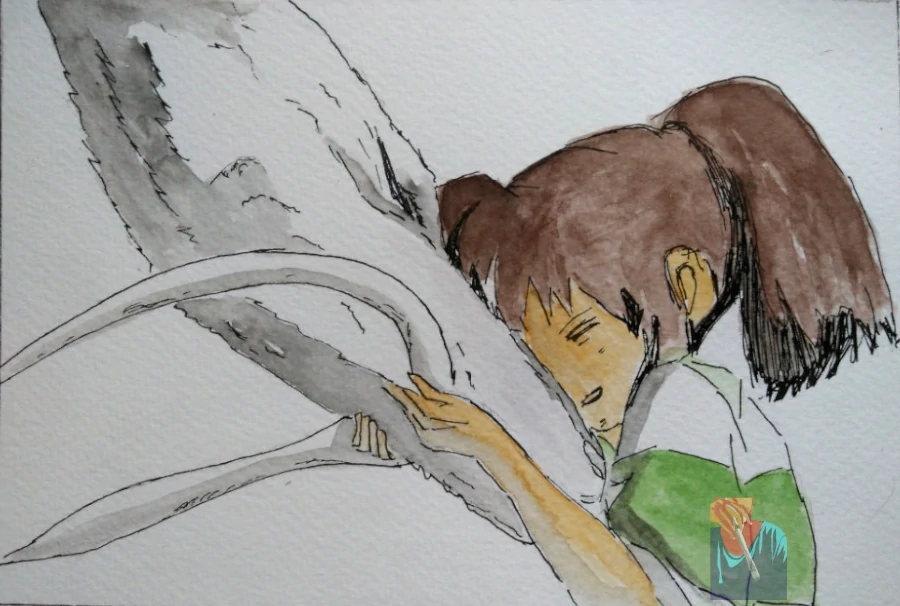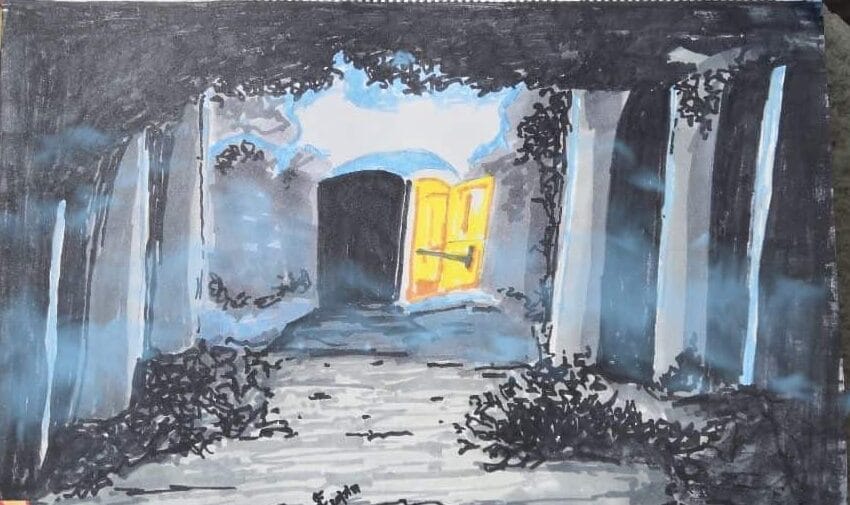‘My sister, our land has a throbbing heart,
It doesn’t cease to beat, and it endures
the unendurable. It keeps the secrets
of hills and wombs. This land sprouting
with spikes and palms is also the land
that gives birth to a freedom fighter.
This land, my sister, is a woman.’
– Hamza, Fadwa Tuqan. Palestine.
AD
“This is all from the bra, just loosen it a little bit.”
“Generally, these things disappear with marriage. Don’t worry.”
“It’s just a small benign tumor. It will go away by itself.”
Based on the true story of 29-year-old Fatma Bargouth, Fatenah captures the essence of a woman’s fight for survival in military occupation.
There are many ways to experience Fatenah, the first 3D animation film from Palestine released in 2009, that establishes medical misogyny early in the movie. It becomes apparent to the viewer that Fatenah’s life is not going to be easy on a land that struggles with the sounds of gunfire and bombs on an almost daily basis.
With limited access to animation tools and the right skills, the makers deliver a poignant film that captures the essence of the hard life in Palestine, particularly those of women who face a double bombardment of patriarchy.
Let’s look at it closely.
The desire for a simple life
A lot in life can be taken for granted on a land without conflict.
Fatenah’s desires are simple. Her daily job, caring for her family, and wishing to marry the man she loves is all that she desires. In any other film, she would be labeled bland. The viewers see more spunk from her younger sister, who raises her voice at home and outside wherever necessary.
Viewers know that Fatenah died, and she was denied the simplest means of living a life as a combined result of medical misogyny, money woes, and political conflict.
Education in apartheid
“I will learn journalism when we have real laws and a real country.”
The creators of Fatenah have used every second of the film to convey the oppression of Palestine and how it reflects in their daily lives, education, and jobs. Fatenah’s younger sister is a journalism student who protests the education she is receiving. She expresses this over the dinner table, and we see her asking for her human rights whenever possible.
Fatenah’s father is a teacher, and viewers glance at the state of jobs in Israel, financial struggles, and unionization efforts through him.
“The salaries are bad, and we don’t even get it. I am going to a meeting in the Teacher’s Union. We’re thinking about another strike because of the salaries.”
A Cultural Export
Animation movies are not mere moving pictures; they are also cultural exports.
Fatenah and her hijab, the words people use to greet each other, and the Mthawamet Batata she serves on the dining table all play a part in communicating a land’s heritage.
In a rather sad instance, she imagines that her wedding is just a distant dream and that the dance and celebrations will never happen. She imagines her lover doing a solitary Palestinian wedding dance to cheer her up as she looks at the setting Mediterranean sun.
A Time Capsule
In many ways, Fatenah is a makeshift film, making the best use of available resources to put together a 30-minute animated short film. The sole animator, Ahmad Habash, toiled for 15 hours daily for a year and a half to release Fatenah as a commercial film.
In multiple instances, images resemble photographs used as a background with additional 3D renderings, capturing the rarer times of peace of street vendors, children playing, and evening street lights.
The pictures used in the film are like time capsules because, as of 2024, places in Al-Shati Refugee Camp in the Gaza Strip and Erez crossing probably no longer exist.
Final Thoughts
“The world looks at Palestinians as numbers.”
In an old interview, Producer Saed Andoni and Director Ahmad Habash discuss the inspirations behind the Fatenah, which has a profound message of looking at the stories behind the numbers of daily reported deaths.
With $60,000 in funding from WHO, Fatenah, with its apparent imperfections, teleports viewers to Gaza. Despite its technical limitations, it is still a deeply saddening film about life, about wanting to live a good life, and how a wish as simple as that is denied under an oppressive Israeli regime.
AD



